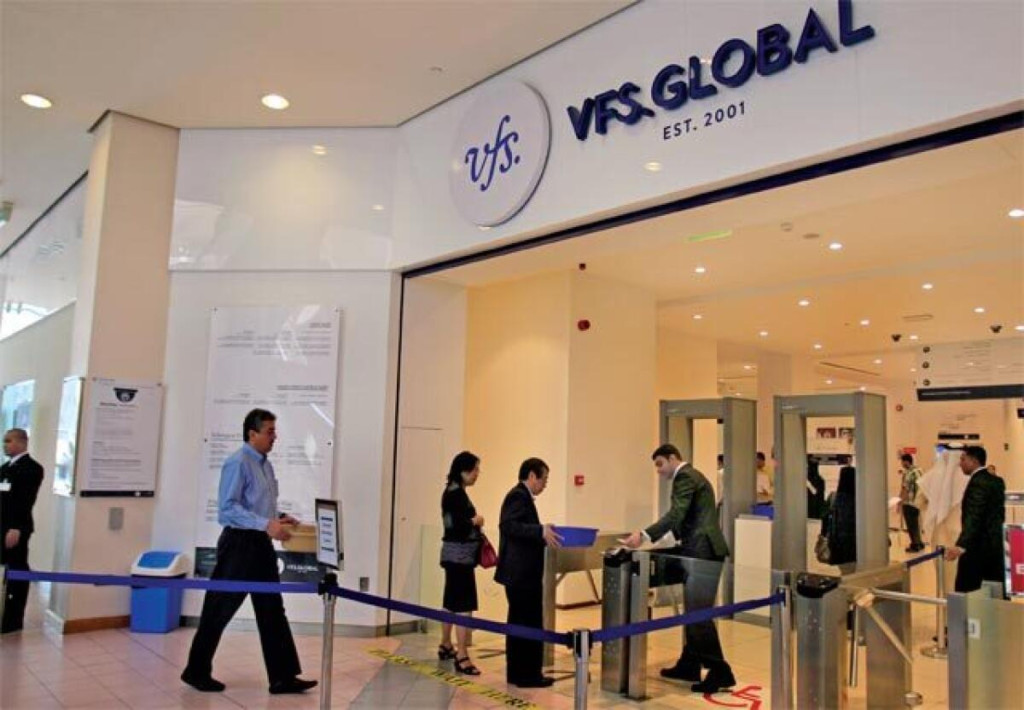
Germany is one of the most sought-after destinations for international students due to its high-quality education system, affordable tuition fees, and diverse culture. Thousands of students from around the world apply to German universities every year to pursue higher education in various fields. However, before packing your bags, there is an essential step you must complete: obtaining a student visa to study in Germany. In many countries, this process involves applying through a Visa Facilitation Services (VFS) center. In this article, we will provide a comprehensive, detailed, and SEO-friendly guide to the VFS process for a German study visa, covering all the key steps you need to follow.
What is VFS?
VFS Global is a trusted outsourcing and technology services company for governments and diplomatic missions worldwide. The German consulate or embassy in many countries outsources the visa application process to VFS to make it easier for applicants to submit their applications and track the process. VFS handles everything from collecting documents to scheduling appointments and even biometric data capture. For students who wish to study in Germany, applying through VFS is often the first step in getting their visa.
Types of German Student Visas
Before you start the application process, it’s important to know the types of student visas offered by Germany:
- Student Applicant Visa (Visum zur Studienbewerbung): If you haven’t been accepted into a university yet but want to travel to Germany to apply for programs or take entrance exams, this is the visa you’ll need. It is typically valid for three months and can be extended to six months.
- Student Visa (Visum zu Studienzwecken): This is the main visa required for students who have already been accepted by a German university. This visa is issued for the duration of your course and can be extended as required.
- Language Course Visa (Sprachkursvisum): If you are attending a language course in Germany that lasts 3 to 12 months, you’ll need this visa.
For most international students applying to German universities, the Student Visa is the most relevant.
Step-by-Step Guide to Applying for a German Study Visa through VFS
Step 1: Check the Visa Requirements
The first step is to visit the official VFS Global website and check the specific visa requirements for students applying to study in Germany. Depending on your nationality, the requirements may vary. You can find the information under the section for Germany on the VFS Global website specific to your country.
Here are some common documents that you may need:
- Passport: A valid passport with at least two blank pages.
- Completed visa application form: You can download this from the VFS website or the German embassy’s official site.
- Proof of university admission (Zulassungsbescheid): This is a letter from the university confirming that you’ve been admitted.
- Proof of financial resources (Finanzierungsnachweis): You must prove you have sufficient funds to cover your stay in Germany, usually through a blocked account (Sperrkonto).
- Proof of health insurance: Health insurance coverage is mandatory for students in Germany.
- Academic transcripts and certificates: Documents from previous education (school or university).
- Motivation letter: A letter explaining why you want to study in Germany and your future career goals.
- Language proficiency test results: Depending on the program, you may need to show proof of your proficiency in German or English.
Step 2: Open a Blocked Account (Sperrkonto)
Germany requires international students to have a minimum amount of money available for living expenses during their studies. A blocked account ensures that you meet this requirement. The amount required in a blocked account is typically around €11,208 per year (around €934 per month). Many students open their blocked account with Deutsche Bank, Expatrio, or Fintiba.
Opening this account is crucial as you’ll need to submit proof of sufficient funds when applying for your visa through VFS.
Step 3: Book an Appointment with VFS
Once you have all the necessary documents ready, it’s time to book an appointment at the nearest VFS center. Due to high demand, especially during peak seasons (July to September), it’s advisable to book your appointment well in advance. You can schedule the appointment online through the VFS Global website by selecting your country, type of visa (student), and preferred date.
Step 4: Attend the Visa Appointment
On the day of your appointment, you will need to go to the VFS center in person. Ensure you carry all the necessary documents, as missing any required paperwork could result in delays or rejection. At the VFS center, your biometrics (fingerprints and photos) will also be taken as part of the application process.
Here’s what typically happens during your VFS appointment:
- Document submission: You will submit your application form and supporting documents.
- Biometric data capture: VFS will take your fingerprints and photo for the visa process.
- Visa fee payment: You will need to pay a visa processing fee, which is usually around €75. Payment can be made online or at the center.
Step 5: Wait for Visa Processing
After submitting your documents at the VFS center, your application will be forwarded to the German embassy or consulate for processing. The time taken for visa approval can vary depending on several factors such as the time of year and the embassy’s workload. On average, it can take between 6 to 12 weeks, so make sure to apply well ahead of your course start date.
You can track the status of your visa application online through the VFS tracking system by using the reference number provided at the time of submission.
Step 6: Collect Your Visa
Once your visa is approved, you will receive a notification to collect your passport from the VFS center. You can either collect it in person or opt for a courier service to have it delivered to your home. When collecting the passport, ensure that all the details on your visa are correct, including your name, duration of stay, and university name.
Key Points to Remember
- Start Early: Visa appointments can take time, and processing can last several weeks. Start the process early—at least 3 to 4 months before your course begins.
- Check Document Requirements Carefully: Missing or incorrect documents can lead to delays or visa rejection. Ensure that you have all the required papers in the correct format.
- Keep Financial Proof Ready: Opening a blocked account is one of the most critical steps in proving your financial capability. Ensure that the blocked account is opened well before your appointment.
- Health Insurance is a Must: You need health insurance to stay in Germany. Without proof of insurance, your visa application could be rejected.
- Monitor the Status: After submitting your application, keep an eye on the status through the VFS tracking service. Respond promptly to any additional information requests from the consulate.
Frequently Asked Questions (FAQs)
1. How long does the student visa process take?
The visa processing time can take anywhere between 6 to 12 weeks depending on your country of origin and the time of year.
2. What happens if my visa is delayed?
If your visa is delayed, you should contact the VFS center or the German embassy for an update. In some cases, universities may allow you to defer your admission if your visa is significantly delayed.
3. Do I need a blocked account to apply for a student visa?
Yes, most students are required to provide proof of sufficient funds via a blocked account to cover their living expenses in Germany.
4. Can I work while studying in Germany?
Yes, international students on a student visa are allowed to work part-time in Germany for up to 120 full days or 240 half days per year.
5. What happens if my visa application is rejected?
If your visa application is rejected, you will receive an explanation from the consulate. You can appeal the decision or reapply by addressing the reasons for rejection.
Conclusion
The VFS process for obtaining a German student visa can seem complicated at first, but with careful planning, you can navigate it smoothly. Make sure to gather all your documents, open your blocked account, and book your VFS appointment well in advance. By following the steps outlined in this guide, you’ll be well on your way to beginning your academic journey in Germany.
Germany offers unparalleled educational opportunities and experiences for students from around the world, and with the right preparation, you can make your dream of studying in Germany a reality!


